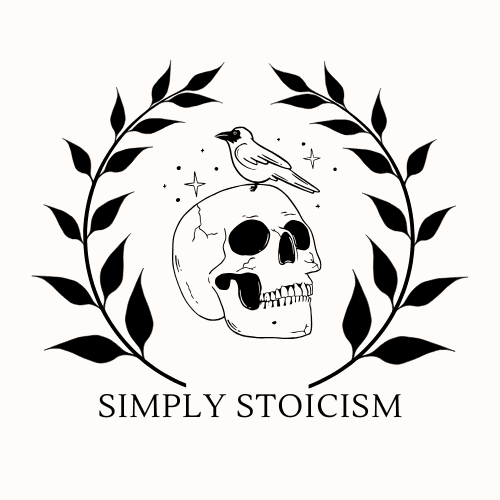How to Journal Like a Stoic: A 10-Minute Daily Practice That Actually Works
Transform your daily reflection with this practical 10-minute Stoic journaling guide. Learn ancient wisdom-backed prompts and techniques to build self-awareness and resilience every day.

Jon High
·
Dec 17, 2024
You're staring at that blank journal page again. Maybe you bought one of those fancy leather-bound notebooks that screams "I have my life together!" Or perhaps you're looking at yet another empty Notes app entry, cursor blinking accusingly.
You know journaling is supposed to be good for you. The internet won't shut up about it. But somehow, your attempts at profound self-reflection keep turning into elaborate to-do lists or angsty diary entries that would make your teenage self cringe.
Here's the thing: The ancient Stoics figured out journaling long before it was cool. No fancy apps. No gratitude prompts with cute little checkboxes. Just ruthlessly effective self-examination that helped them run empires, survive exile, and deal with way worse problems than your passive-aggressive coworker.
Let me show you how to do it in just 10 minutes a day.
Why Most People Fail at Journaling (And How Stoics Fix It)
The problem with modern journaling advice is that it tries to make you feel good. Write down three things you're grateful for! Manifest your best life! Record your hopes and dreams!
That's cute. But the Stoics would call bullshit.
See, Stoic journaling isn't about feeling good—it's about getting better. It's about staring your flaws in the face and saying, "Well, that was embarrassingly human of me. Let's figure out how to suck less tomorrow."
As Marcus Aurelius wrote (to himself, by the way—history's greatest humble brag): "Daily self-examination is necessary to prevent the ulceration of your soul." Not exactly Instagram inspiration material, but way more useful.
The 10-Minute Stoic Journaling Framework
Here's your simple, no-BS framework for journaling like a Stoic starter kit:
Morning Review (5 minutes):
What challenges might I face today?
What virtues will I need?
What's actually in my control?
Evening Review (5 minutes):
What went wrong today and why?
What could I have done better?
What wisdom can I take from this?
That's it. No manifestation. No vision boards. Just honest self-reflection and practical improvement.
How to Actually Do This (Without Making Excuses)
"But I don't have time!" I hear you cry, probably while scrolling Instagram. Let's fix that. And before you tell me your problems are special and deserve special treatment, let me stop you right there.
1. Make it Ridiculously Easy
Keep your journal by your bed
Set a timer for exactly 5 minutes
Write in bullet points if you need to
Use your phone if paper feels overwhelming
Don't worry about being profound
2. Ask Better Questions
Instead of vague prompts, use these Stoic-inspired questions:
Morning:
"What could make me lose my temper today?"
"Where might I act like a coward?"
"How could I help someone else today?"
Evening:
"Did I add to the world's noise or its wisdom?"
"Was I the person I claim to want to be?"
"What excuse am I hiding behind?"
3. Focus on Actions, Not Feelings
The Stoics cared about what you did, not how you felt about it. Structure your entries around:
Specific behaviors
Concrete decisions
Real interactions
Actual consequences
The Emergency Stoic Journal Protocol
Sometimes life hits the fan. For those moments, when you're tempted to just react without thinking (like our non-philosopher friends), here's your emergency journaling framework based on the four ancient Stoic virtues:
What's actually happening? (Facts only)
What's my role in this mess?
What's in my control right now?
What virtue does this situation demand?
What would the wisest person I know do?
Common Mistakes to Avoid
Writing What Sounds Good: Your journal isn't a performance. No one's reading this but you, so cut the BS.
Vague Wishy-Washy Entries: "I'll try to be better" isn't a plan. Be specific about what better looks like.
Focusing on Others: Your journal is for examining your own behavior, not cataloging everyone else's failures.
Making Excuses: Your journal is not your PR agent. It's your personal truth-teller.
Your First 5 Days of Stoic Journaling
Here's your starter plan:
Day 1: Focus on Actions
Write only about what you did or didn't do. No interpretations, just facts.
Day 2: Examine Reactions
Look at how you responded to challenges. Were your reactions helpful?
Day 3: Study Your Patterns
What behaviors keep showing up? What triggers certain responses?
Day 4: Plan Improvements
Based on your patterns, what specific changes could you make?
Day 5: Review Progress
Look back at Days 1-4. What have you learned about yourself?
The Bottom Line
Stoic journaling isn't about creating a beautiful record of your thoughts or manifesting your best life. It's about becoming less wrong tomorrow than you were today. It's about focusing on what you can control and letting go of what you can't - starting with your own thoughts and actions.
Start with 10 minutes. Be brutally honest. Focus on actions. That's it.
And remember what Epictetus said: "Don't just say you have read books. Show that through them you have learned to think better."
Ready to actually do this? Grab your journal (or phone) right now and answer one question: "What's the most important thing I'm avoiding looking at in my life?"
Your answer might surprise you. And that's exactly where the real work begins.
Want to dive deeper into practical Stoic wisdom? Check out our guide to applying ancient philosophy to modern problems, or join our weekly newsletter for more no-BS personal development insights.



